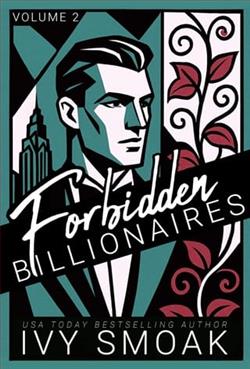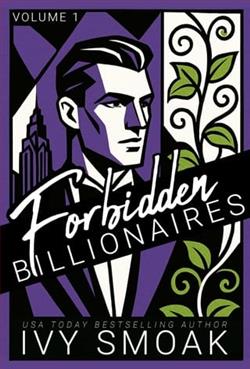Page 11 of So Far Gone
“Is that good?”
“Not for the car it isn’t.” Kinnick bent down and edged into the dark crawl space. He unhooked the charger from the battery and set it on a cluttered shelf. He opened the car door—the light went on, that was good—slipped into the driver’s seat, closed his eyes, and turned the key. It shuddered and clunked—those metal-on-metal sounds did not bode well—and then, it caught! It sounded like ahandful of wrenches in a dryer, but after a belch of green-black smoke—unmitigated success!
As the car warmed up, Kinnick cleared magazines and books off the backseat, throwing them into a pile among the other piles of magazines and books in the small, dirt-floored crawl space.
He emerged from his little Hobbit garage and stood up straight. “See that? First try.”
“Why did you drop out?”
Kinnick looked up at his granddaughter, gazing over the edge of the sunken driveway. “Is that what your mom said? That I dropped out?” How had he not recognized this girl on the porch? Shewasher mother at thirteen, the age when Bethany and he were the closest. Before the trouble. Same insistent, dark, almond-shaped eyes. Same long brown hair. Same direct way of speaking.
“Yes. Mom said you dropped out.”
“Well.” It was funny she would use that phrase. By the time Bethany was a senior in high school, Kinnick worried constantly about her quitting school. The fear of every parent: having your kid drop out. Bethany was a strong candidate, too: she’d found her way to drugs—pot, mostly—harder stuff later on. And she’d always had problems with authority, watching teachers and principals (and parents) for any sign that they were hypocrites, which, being human beings, of course they were. As Celia always said, their daughter was “allergic to conformity.” But, even with her parents beginning to talk about divorce, and Bethany in full sullen weed-smoking seventeen-year-old slackery, she hadnotdropped out. In fact, she’d finished high school, and then college and now, look—it was her father who was the dropout. He wondered if Bethany saw the irony, too.
“At the time, it didn’t feel like I was dropping out,” Kinnick told Leah. “It felt more like I was... stepping aside.” Did that explain it? Should he say more than that? He was so rusty at communication. Yes, he thought, he should probably say more. “It certainly wasn’t aboutyour mom. Or your grandma. Or Shane. And it sure wasn’t about you and Asher. I hope you know that. And I hope Beth—I hope your mom knows that. It was about me. I felt like the world was drifting in one direction and I was going the other way.”
And still his granddaughter stared. How to explain self-exile? Part of ithad beenthe fight with Shane. And Bethany’s reaction. It symbolized the dark, sour turn the whole country had taken. As a journalist, as an American, as a rationalist, Kinnick had come to terms with the fact that 20 percent of his countrymen were greedy assholes. But then, in 2016, the greedy assholes joined with the idiot assholes and the paranoid assholes in what turned out to be an unbeatable constituency, Kinnick realizing that the asshole ceiling was much higher than he’d thought, perhaps half the country. Whatever the number, it was more than he could bear. Especially when they were in his own family.
But, if he was being honest, it wasn’t those people, his fellow Americans, many of whom had probably always been as distracted or as scared or as cynical as they revealed themselves to be by electing a ridiculous racist con man. No,theyweren’t really the problem. Most of them probably just wanted lower taxes, or liked bad television, or, like Shane, had fallen into the fake-Christian faux-conservative Nationalist cesspool; or maybe they were just burned-out and believed that corruption had rotted everything, that one party was as bad as the next; or maybe they really did long for some nonexistent past.
Whatevertheirmotivation, for Kinnick, it was all just part of a long sad cultural slide that he’d had the misfortune of witnessing firsthand (celebrity entertainment bleeding into government, cable TV eroding newspapers, information collapsing into a huge Internet-size black hole of bad ideas, bald-faced lies, and bullshit, until the literalworstperson in America got elected president). There was inside of Kinnick an emptiness that felt like depression. Probably no coincidence that this bone-deep sorrow arrived as his relationship with his then-girlfriend, Lucy, was ending, as his newspaper was laying him off, as he lost acareer that he’d believed was not only vital for him but also for his community, and, perhaps, naively, for democracy.
No, it washewho had failed,hewho couldn’t adjust,hewho couldn’t deal with this banal, brutal idiocracy,hewho couldn’t admitthiswas the world now. And so... he’d stepped aside. Moved to the last sliver of land once owned by his wannabe sheep-rancher grandfather. But once he began withdrawing, erasing himself, he couldn’t stop. Until now, when Kinnick saw that he’d been living entirely in his own head for a year now, and had inexplicably reached a place where he didn’t even recognize his own grandchildren.
“?‘I find it wholesome to be alone the greater part of the time,’?” Kinnick finally said to his inquisitive granddaughter. “?‘To be in company, even with the best, is soon wearisome and dissipating.’?”
She stared at him.
“I don’t suppose Thoreau’sWaldenwas on your church’s list of approved titles.”
“I don’t think so,” Leah said.
“No, probably not.” Rhys Kinnick tried his best grandfatherly smile, and he thought again:Oh, Celia. Oh, Bethany. I’m sorry.
“Well then.” Kinnick cleared his throat. “What do you say we go get your wet, prodigy of a brother and get him to his chess tournament.” He started to walk, but Leah didn’t move.
“I should tell you...” She scrunched up her face. “He plays chess about as well as he jumps over creeks.”
Kinnick smiled. “Well, you know what? I kind of want to see that.”
***
Thanksgiving Day 2016 Kinnick drove away from his daughter’s house with no idea where he might be going. His right hand throbbed below the ring finger knuckle, where he’d broken one of the small bird bones in the back of his hand punching Shane’s thick head. He almost wishedShane had punched him back, but for all his bluster, Shane wasn’t really a violent sort. Kinnick had to give him that. He sped north on I-5, through patches of fog, his cell phone in the passenger seat like a disapproving friend, alternating buzzing and ringing. He reached over for it and read the text messages as he drove, glancing back and forth from road to screen and back. Celia’s were of theJust turn around, you made your pointvariety, Bethany’s moreDon’t bother coming back.
He should call Bethany and apologize, call Celia and explain, maybe call his old flame, Lucy, in Spokane, and ask her to talk him down. This last call was the most appealing, frankly, but Lucy had been clear about ending the affair with Kinnick. (I don’t want to fucking see you ever again.) God bless Lucy Park and her profane lack of ambivalence. Still, technically, talking on the phone with someonewasn’tseeingthem.
But no. If he was going to call anyone, it should be Bethany. That was the right thing to do. She had left two voicemails, and she was the one he owed an apology to. All he had to do was press her name on the screen, and boom—even speeding away at eighty miles per hour, technology would put her right here next to him, in his ear, his brilliant baby girl, as clear as if she were in the car with him. He turned his iPhone over in his hand. Remarkable. Every human connection he had left was contained inside its miniature electronic circuitry. Kinnick didn’t know a single phone number by memory anymore. They were all just filaments, bits of data in this device. He could rattle off the exchange numbers of his youth (Walnut-4–9378, Keystone-6–2454...), but without this $600 Pop-Tart of modern science, he had no way of reaching any other human being, and they had no way of reaching him.
But more than that! This device knew him better than anyone ever had; it knew his weaknesses (best happy hour near me), his tastes (’70s soul and R&B), his worries (erections after fifty), his crude, sad desires (adventurous 40-to-50-something, dates only, not looking for a relationship), even what socks he preferred (athletic, white and black), knew every place he’d ever walked and driven and—
He was surprised to be surprised to see the phone fly out the window. He had been the one to lower the window in the first place, after all, so it shouldn’t have shocked him, but it was almost as if the act of flipping it out the window had preceded the idea. A quick glance in his side mirror and he saw his phone cartwheel once on the shoulder and then disappear in the weeds between lanes.
Go back!The urge was physical, intense, like he’d tossed out a baby, or his last bottle of booze. What if someone needs you? What if Shane becomes violent back there? What if there’s some emergency with Bethany’s kids? What if Lucy Park changes her mind? What if theNew York Timesoffers you a job? What if the perfect 40-to-50-something interested only in sex and not in a relationship sends you a text message? What if you run out of socks?
Of course, he could just get another phone.
“If I do that,” Kinnick muttered to himself, “I’ll be lost forever.”















